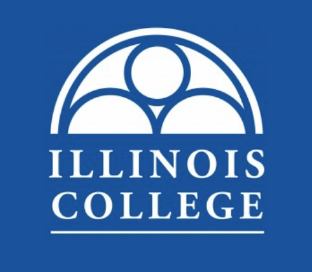Students helping save rare orchids
Illinois College’s biology department continues to make a worldwide impact in orchid conservation, and it now has an internationally famous partner in the mission.

IC is collaborating with the Smithsonian Environmental Research Center to research and conserve the native orchids of Palau, an island about 500 miles southeast of the Philippines.
“We were asked by the Smithsonian to study the fungi that the orchids need in Palau because we already had a [U.S. Department of Agriculture]-certified noxious pests quarantine facility from our previous work with Madagascar orchids,” said IC biology professor Lawrence Zettler, who directs IC’s well-known orchid recovery program.
Zettler said the Palau project is in the second year of a projected three-year study.
During the past year, Smithsonian research scientist Benjamin J. Crain led an orchid research team to Palau, where they collected orchid roots from about two dozen orchid species out of more than 90 species on the island.
“The orchids of Palau remain largely unstudied, and many of them are appealing and could potentially be grown for horticulture,” Zettler said. “There are potential new medicines that could be produced from the orchid fungi we extract from the Palau samples.”
Crain explained why Palau orchids were chosen for the research project.
“We were initially approached by the U.S. Forest Service to conduct the work in Palau because a new Smithsonian ForestGEO plot, which the Forest Service’s Institute of Pacific Islands Forestry manages, was being established there,” Crain said.
“The reasons behind this are that Palau contains some of the most intact tropical forests in all of Micronesia. Within these forests is a disproportionately large diversity of orchids (consider that Guam has about 30 species and Hawaii has only 3), many of which are rare and endemic,” he said. “At the same time, these forests are facing threats ranging from climate change to unnatural/uncontrolled forest fires. Thus, there is an interest in Palau not only from an ecological perspective (it is a unique tropical archipelago whose flora are influenced by Asia as well as New Guinea and Australia) but from a conservation perspective.”
Zettler said orchids are considered to be the most vulnerable of all plants on earth.
“Orchids are the first plants to disappear in their natural habitat because of their extreme sensitivity to acute environmental changes,” Zettler said. “They are like the canary in the coal mine.”
Crain said the Smithsonian decided to partner with IC on the Palau project for two primary reasons: Zettler’s orchid expertise and the USDA quarantine facility at IC.
“Dr. Zettler is a renowned orchid/mycorrhizae expert who is dedicated to ecological approaches to orchid conservation,” Crain said. “It was a great opportunity to collaborate with and learn from one of the foremost experts in the field. The infrastructure (the quarantine facility) at IC is ideal (and required in fact) for working with fungi from international sources and thus it offered us a great opportunity to conduct the research we are doing.”
Crain visited IC’s quarantine facility in October and April, where he worked with IC students on orchid fungi samples that he had collected on Palau.
“I appreciated the fact that Dr. Crain treated me like an equal co-worker in the lab,” said Audrey Earle, an IC sophomore biology and psychology major from Elkhorn, Wisconsin. “He’s great to work with. Since working in the biology labs, it has changed my outlook on my future career in the medical field. I enjoy lab research, and I’m certain that I want to do that in my career.”
Earle and nine other IC students are involved in the Palau orchid conservation project.
“It was a learning experience for both me and Dr. Crain because we learned his fungal extraction techniques and he learned ours,” added Hannah Baker, an IC freshman biology major from Webb City, Missouri. “This has been the biggest educational opportunity for me in my life. It has opened so many doors for me.”
Crain has been pleased to work with the IC students.
“I couldn’t be happier with the students from IC,” he said. “They showed a level of commitment and dedication beyond what I have seen from many students in the past, including at some much larger universities. Their enthusiasm for the work is clearly expressed and the quality of work that results from this is directly correlated. We are very grateful for their contributions because it really takes ‘all hands’ to carry out an interdisciplinary project of this magnitude.”
Zettler said he enjoys seeing how science can change lives and help orchids at the same time.
“The heart and soul and enjoyment of the Palau project are to have our students learn cutting-edge science techniques to further their science careers and at the same time conserve the world’s rare orchids,” he said. “We have had over 100 students in IC’s orchid recovery program in the past 20 years, and they use the experience as a springboard to learn science by doing science to prepare them for their future careers.”
Since 1996, IC’s orchid recovery program has researched orchids from the Midwest, Florida, Hawaii, Ecuador, Madagascar, Cuba and Palau.
Zettler said the next step in the Palau project is to secure funding to enable an IC delegation to go to Palau to collect more orchid samples and to extend the project so that orchid dynamics can be monitored as well.
Zettler is being assisted by Hana Thixton, a 2015 IC graduate and a visiting IC biology instructor, and Laura Corey, an associate professor of biology at IC and chair of IC’s biology department. They are helping with the molecular identification of Palau fungi.
Dr. Zettler and Dr. Corey recently had their research published in the book "Orchid Propagation: From Laboratories to Greenhouses—Methods and Protocols." Their work appears as a chapter with the title "Orchid Mycorrhizal Fungi: Isolation and Identification Techniques."
For more information about related research, visit Orchid Recovery Program at Illinois College.


